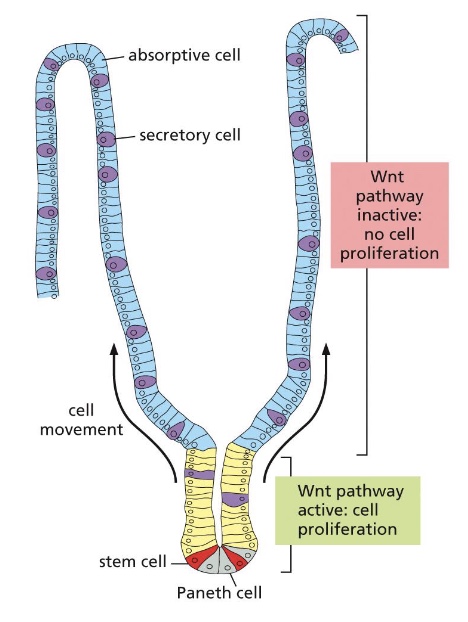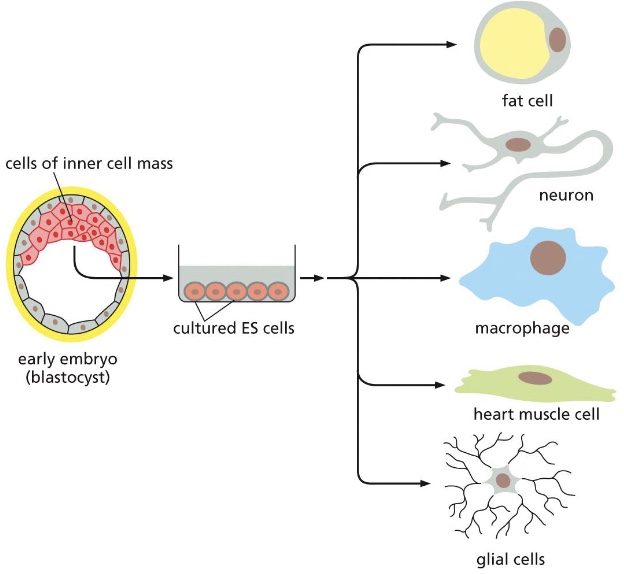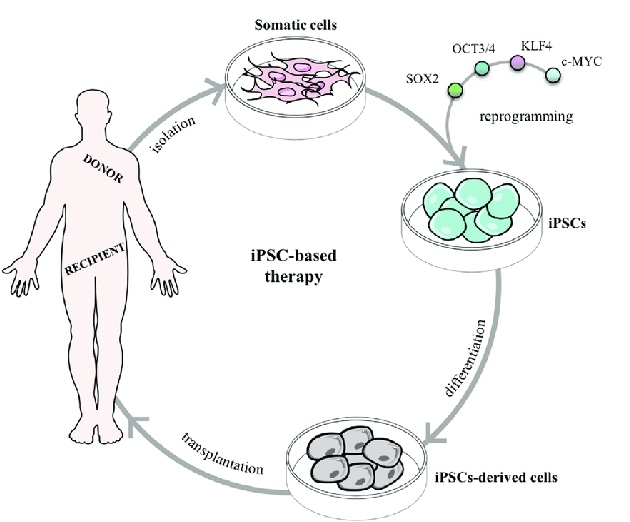molecular bio exam 4 Ch.20
1/12
There's no tags or description
Looks like no tags are added yet.
Name | Mastery | Learn | Test | Matching | Spaced | Call with Kai |
|---|
No analytics yet
Send a link to your students to track their progress
13 Terms
what is a differentiated cell?
cell that has undergone a coordinated change in gene expression, enabling it to perform a specialized function. They are terminally differentiated (end of their developmental pathway)
what is a proliferating precursor?
cells that divide a limited number of times before they terminally differentiate
what are stem-cells?
relatively undifferentiated, self-renewing cell that can differentiate into more specialized cell types or can retain the developmental potential of the parent cell. Present in small numbers in specific areas
what are Wnt proteins?
member of a family of extracellular signal molecules that regulates cell proliferation and migration during embryonic development and that maintains stem cells in a proliferative state
how do signals maintain stem-cell populations?
Every stem-cell system requires control mechanisms to ensure that new differentiated cells are generated in the appropriate places and in the right numbers

what are embryonic stem cells?
undifferentiated cell type derived from the inner mass of an early mammalian embryo and capable of differentiating to give rise to any of the specialized cell types in the adult body. They are pluripotent (capable of giving rise to any type of cell or tissue)

what are induced pluripotent stem cells (iPS cells)?
somatic cell that has been reprogrammed to resemble and behave like a pluripotent embryonic stem (ES) cell through the artificial introduction of a set of genes encoding particular transcription regulators (Oct4, Sox2, Klf4)
what are drawbacks of iPS cells?
low conversion rate, safety concerns (teratomas)

what are teratomas?
a tumor composed of tissues not normally present at the site (the site being typically in the gonads)
what causes cancer?
caused by abnormal and uncontrolled cell proliferation, followed by invasion and colonization of body sites normally reserved for other cells
what is genetic instability?
an increased rate of mutation often caused by defects in the systems that govern the accurate replication and maintenance of the genome; the resulting mutations sometimes drive the evolution of cancer
how is cancer different from other genetic diseases?
the mutations underlying cancer are mainly somatic mutations (those occurring in individual cells of the body) as opposed to germ-line mutations (germ cells)
how many mutations are needed to lead to cancer?
Normally around 10 are needed. They occur sequentially (increased risk of cancer in older people)